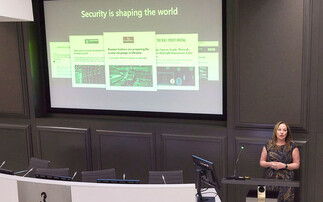Hacktivists on the rampage, Sony and RSA on the back foot, and the UK cyber security strategy all over the place
Cyber security continued to have a high profile in 2011 with the UK government pronouncing cyber crime one of the top three threats to the country. There were also several high-profile hacks of ...
To continue reading this article...
Join Computing
- Unlimited access to real-time news, analysis and opinion from the technology industry
- Receive important and breaking news in our daily newsletter
- Be the first to hear about our events and awards programmes
- Join live member only interviews with IT leaders at the ‘IT Lounge’; your chance to ask your burning tech questions and have them answered
- Access to the Computing Delta hub providing market intelligence and research
- Receive our members-only newsletter with exclusive opinion pieces from senior IT Leaders























